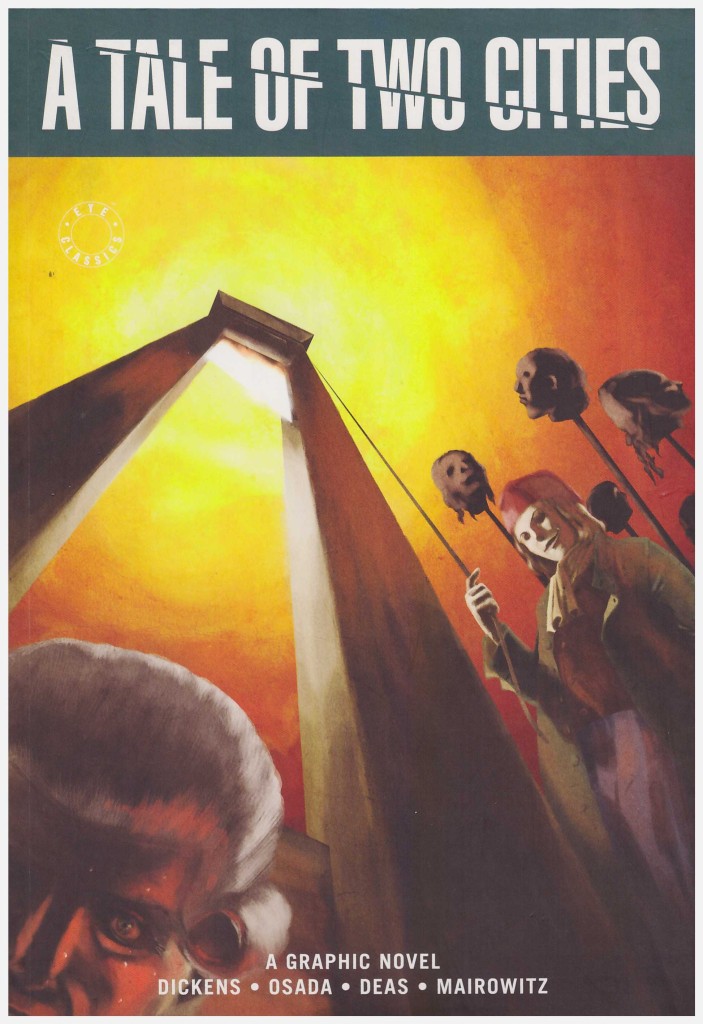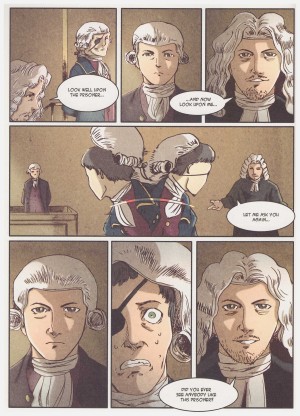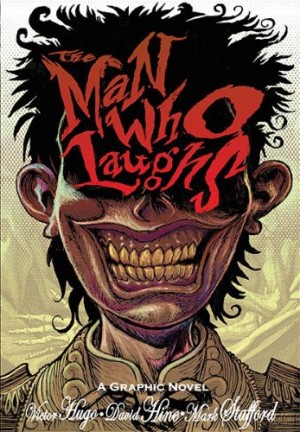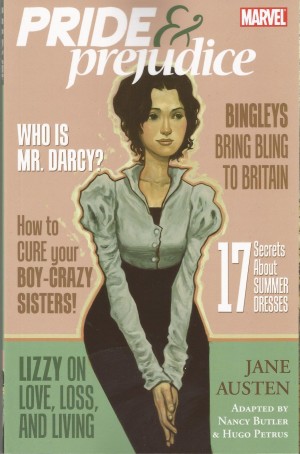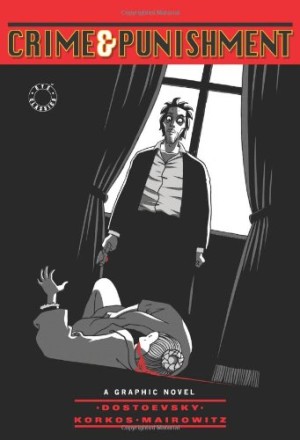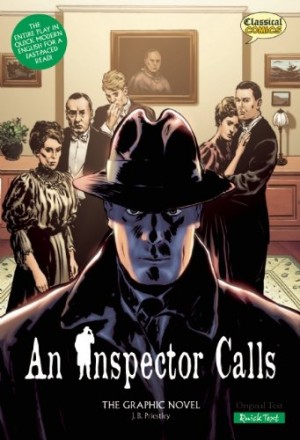Review by Frank Plowright
We have to accept that Dickens’ original tale is going to have to undergo some contraction to fit within 140 pages. Adapter David Zane Mairowitz decided to excise some subplots in order to concentrate on the essence of the novel, which is the contrasting experiences of Charles Darnay and Sidney Carton, two young men with different personalities and different birth nations who greatly resemble each other.
Following what remains of the plot isn’t an easy task, and anyone who’s not read the original novel will have great difficulty filling in the gaps. This is exacerbated by art that fails to do the source material justice. A Tale of Two Cities was a novel Dickens wrote from horror, as Mairowitz notes in his introduction, yet none of the passion that inspired him survives to this retelling. In their uniform periwigs and blue jackets it’s difficult to differentiate the cast, this beyond the deliberate needs of the plot, and the characters are almost constantly portrayed with mouths closed and a blank eyed stare. Ryutu Osada further completely fails to do justice to the source material. Dickens’ writing is richly descriptive, and he set the scenes impeccably. Instead of the richness of revolutionary Paris this adaptation subsists on head and shoulders shots of the cast with no background. The paucity of this approach is accentuated by the use of Dickens’ original text for a few lines at a time, underlining what’s absent.
It’s not just Osada at fault for failing to convey emotion. A great personal sacrifice concludes the novel, a towering emotional moment, yet as presented here it’s almost a random decision because not enough care has been taken to present the characters. Having settled on abbreviating the story, Mairowitz is remarkably faithful to the original chronology, when a smoother read would have resulted from some tinkering due to what he’s then cut. The adaptation opens with several pages that appear to have little relevance to the plot he’s chosen to retain, yet are integral to the finale, and so are extremely awkwardly placed.
Perhaps a longer adaptation presenting the entire story might have produced a more satisfying read, but so much is absent, in terms of both plot and emotion, that this falls far short of what might have been expected.
